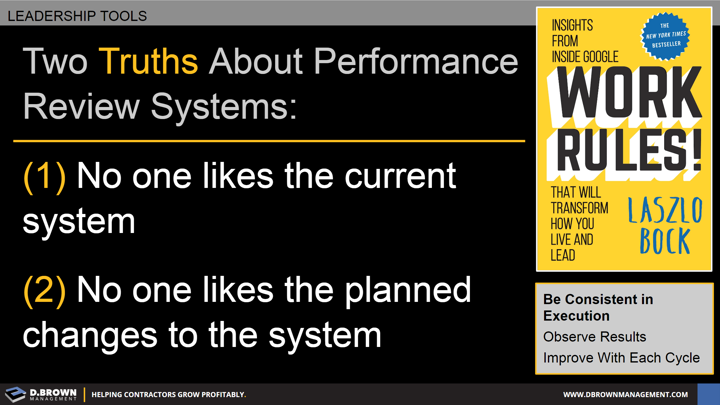Performance evaluation systems are a critical part of mastering talent through talent development and is one of the nine key processes.
With the construction industry having such a shortage of talent, the contractors that will dominate tomorrow will be the ones that have developed systems for quickly building skills within their teams.
The foundation of great coaching like John Wooden is about being able to give rapid and actionable feedback.
Longer term feedback, including career development planning, requires a more formalized structure that is consistent across the business. There is no perfect system, so you should always be watching the results and improving with each cycle: PDCA
-----------------------
Laszlo Bock defines it best in his fantastic book called Work Rules.
There are two truths about performance review systems.
- Truth One: No one likes the current system.
- Truth Two: No one likes the planned changes to the system.
Remember that all great evaluation systems start with a clear job description.

